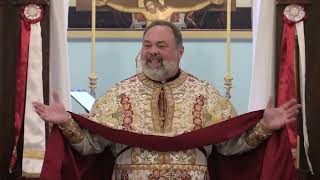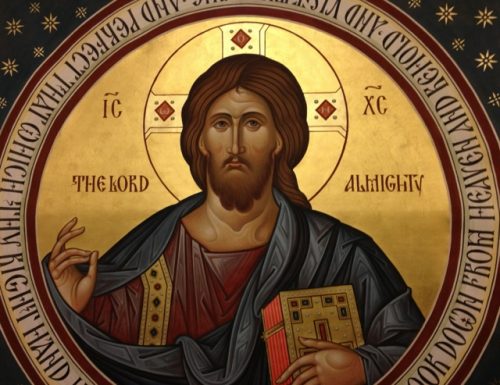 So, I’ve been doing something called “intermittent fasting” to help with the battle of the bulge! My doctor recommended I try it and it has really helped me. But, surprisingly, the biggest help hasn’t been the weight loss! Don’t get me wrong, I’m glad about that. No, the biggest change for the better is how this discipline has made me more attentive to my food choices and portion size! Imagine that, Fasting helps me focus! Saying “no” to something, helps me say “yes” to better choices!
So, I’ve been doing something called “intermittent fasting” to help with the battle of the bulge! My doctor recommended I try it and it has really helped me. But, surprisingly, the biggest help hasn’t been the weight loss! Don’t get me wrong, I’m glad about that. No, the biggest change for the better is how this discipline has made me more attentive to my food choices and portion size! Imagine that, Fasting helps me focus! Saying “no” to something, helps me say “yes” to better choices!
Isn’t it fascinating when science catches up with timeless wisdom?
If one were to take the fasting disciplines of the Orthodox Christian faith seriously, a purposeful follower of this wisdom would have a diet devoid of meat and dairy products for about half the year. The combination of the rhythm of dietary wisdom and focused food choices is meant to form a certain character within us.
And yet, all too often we Orthodox Christians leave this vital and spiritually rewarding tool in our huge tool chest of spiritual remedies for our soul.
I suspect this because we suffer from a dual challenge: We don’t yet understand “what” is the root of our deepest hunger AND “why” fasting is such a valuable source for satisfying that hunger. But that makes perfect sense. The scripture wisely reveals “My people are destroyed for lack of knowledge.” Hosea 4:6. It turns out that what you don’t know (or actually refuse to know) CAN hurt you.
Look at our Gospel Lesson today in Matthew 6:31-34; 7:9-11:
The Lord declares “Do not be anxious, saying, ‘What shall we eat?’ or ‘What shall we drink?’ or ‘What shall we wear?’ For the Gentiles seek all these things; and your heavenly Father knows that you need them all. But seek first his kingdom and his righteousness, and all these things shall be yours as well. Therefore do not be anxious about tomorrow, for tomorrow will be anxious for itself. Let the day’s own trouble be sufficient for the day. Or what man of you, if his son asks him for bread, will give him a stone? Or if he asks for a fish, will give him a serpent? If you then, who are evil, know how to give good gifts to your children, how much more will your Father who is in heaven give good things to those who ask him!”
It turns out my learning how to say “no” to improper priorities is the absolute key to my being able to say “yes” to proper priorities. In fact, seeking “FIRST” the kingdom of God allows all the other priorities in my life to come to proper focus and sufficient attention. It is WHY learning to say “Yes” to God’s wisdom ALWAYS means learning to say “no” to other voices and discerning the difference between true wisdom and the delusions of ego and destructive habits!
Fasting helps me reorient my priorities away from my immediate desires; which can be so unhealthy for me and those around me if they are not properly disciplined; and toward my truest and deepest desire and need – my relationship with God. Because that relationship is absolutely vital for all my other relationships with people, my career, my possessions, and even my own desires. My prioritized relationship with God, the disciplines that strengthen this relationship, and the pattern of life that feeds this relationship, all serve to clarify my choices and my behaviors. I say “no” to foods and choices so I can learn to say “yes” to my truest “food” and my deepest hunger. Intoxicating myself with lesser “foods” only ruins my “appetite” for the spiritual nutrients my soul desperately needs.
This fasting, this willful and voluntary embrace of discipline as the path to authentic freedom seems paradoxical. But only if you forget that true freedom is only experienced in the doing of the good, never is merely acquiescing to my desires.
Today we will begin the Apostles’ Fast in anticipation of the Feast of the Apostles, let us have the courage to embrace seeking God’s Kingdom above all our other desires and passions. Let us learn the wisdom of strengthening our ability to say “yes” to eternal things by exercising our saying “no” to temporary desires. Learning how to feed our truest hunger is the key to lifelong joy and peace! So, why is fasting so hard for you? Don’t you want to be Orthodox on Purpose?
P.S. Dear Lord, as we begin the Apostle’s Fast today, grant us the courage and the humility of Sts. Peter and Paul. Give us the strength and grace to say “no” to a life lived asleep to the eternal reality of being created in Your image. Help us to focus on that which is good, so that which is less than You created us to be will fall away from our lives. Amen.



3 Comments
Therese
So I am curious if this changes your view of fasting….because one thing I hear of a lot in Orthodox circles is people minimizing the power of fasting. They’ll say things like, there is no point in fasting if you’re not praying or if you’re committing other sins while fasting, might as well just stop fasting, that catetchumens shouldn’t fast because fasting is too hard if you’re not baptised and chrismated (which is silly when non-religious people fast all the time for medical procedures or for weight loss). Even atheists have started intermittent fasting and noticed the same results as you, such as learning to excerise moderation in food and other areas of their life. So shouldn’t there be a lot more positivity in Orthodox circles about fasting? And also, isn’t it sad you had to learn about intermittent fasting from your doctor? This used to really bother me, that science had a more effective idea of fasting than the Church where fasting could be eating 16 hours a day of vegan food….but then I realized, when the fasting rules were constructed, people were naturally intermittent fasting, because they weren’t snacking at all hours of the day and night, so they would just naturally get a much longer period of fasting overnight than people do today. So of course the Church wasn’t going to address something that wasn’t a problem at the time. But since now that we know our modern way of eating all day long is a problem, should the Church do more to address it than just mandating a vegan diet during fasting periods?
M Emberson
Not so easy for those who cannot eat grains,beans ,eggs many vegetables and so on. Should we be excluded because of what we eat?
Therese
See, that’s where I think intermittent fasting is very helpful with Orthodox style fasting. Trying to think up three meals a day that follow Orthodox rules and exclude grains, beans, etc would be very burdensome, so at least if you had to only think of one meal a day that’s a lot easier and you’re less likely to get sick of eating the same thing every day if you’re only eating once a day. The internet is also very helpful with finding recipes, just enter your requirements “grain free, bean free, vegan, etc”.
Obligatory disclaimer: “Talk to your priest and your medical doctor.”